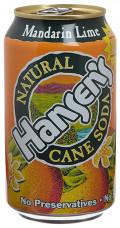Coca-Cola Wins Round II as California Appellate Court Reverses Massive Jury Award
By Jennifer E. RothmanJuly 8, 2021

The California Court of Appeal for the Fourth District reversed an almost $10 million jury award against Coca-Cola in Hansen v. Coca-Cola Company in a recent unpublished decision. The dispute arises out of the Hansen’s sodas and juice brand (now owned by Coca-Cola) and a trust composed of the real Hubert Hansen’s descendents who claim to own his right of publicity and to deserve a piece of Coca-Cola’s profits for the use of Hubert’s identity. (I follow the court’s convention of using Hubert Hansen’s first name to distinguish him, the person, from the Hansen’s brand that he founded.)
I have been tracking this case for some time and was hired as an expert for the defense in the case. For those who haven’t been following it, the case involves the use of Hubert Hansen’s name, likeness, and life story in the context of the sale of sodas and juices by Coca-Cola, which now is the owner of the company (and related companies) that Hubert Hansen initially founded in 1935. Hubert died in 1951. (The story of corporate ownership is complicated, and for simplicity is worth distilling to the understanding that after a series of transfers, bankruptcies, and mergers the parties seem to agree that Coca-Cola now holds all property (tangible and intangible) that the various related Hansen companies once held, except perhaps for Hubert’s postmortem right of publicity.)
In the aftermath of the public announcement of Coca-Cola’s purchase of the Hansen brand, various relatives of Hubert’s, mostly grandchildren, formed the Hubert Hansen Intellectual Property Trust, to which they transferred their claimed interests in his postmortem right of publicity. The Trust then demanded payment for the use of Hubert’s publicity rights. When Coca-Cola (and its predecessor to the Hansen brand, Monster Beverage) declined, the Trust sued.
The trial court focused primarily on whether the “asset transfer agreements that included all intellectual and intangible property owned and used by companies operated by Hubert’s descendents” included Hubert’s right of publicity. Slip Op. at 3. The trial court concluded that they did not, and did not consider whether any more limited rights (such as licenses, waivers, or other intellectual property rights) afforded permission to use Hubert’s name, likeness, or identity. After making these conclusions as a matter of law, the judge turned the case over to the jury to resolve the “remaining issues.” Slip Op. at 4.
The appellate court determined that the trial court had relied on extrinsic evidence to interpret the asset transfer agreements, and had improperly resolved conflicting evidence and made credibility decisions (including about expert testimony) in the process. According to the appellate court, this overstepped the court’s authority as “[s]uch determinations are the province of the jury.” Slip Op. at 4, 19. As a result, the appellate court reversed and remanded the case for a new trial. Slip Op. at 4, 19-39. Although it is possible the plaintiffs will seek review by the California Supreme Court, it is more likely that the case will return to the superior court without further appellate review and proceed to a new trial, with a new judge.
This case remains one to watch as many businesses and products are named after real people and many transfer agreements do not include the specific use of the term “right of publicity.” Separate from what this case means for the transfer of publicity rights or individual licenses of such rights related to a specific business or product, this case also raises important questions about the right of publicity’s intersection with other IP rights such as trademarks and copyrights. These intersections are the subject of a new project of mine—more on that in the months to come.
